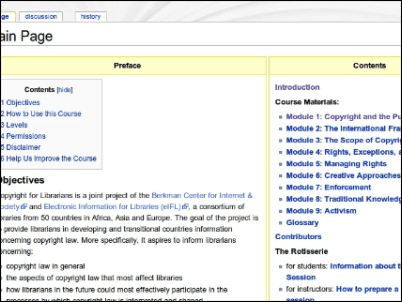Page 18 of 52
Science and Protestantism: why is evolution a target?
 Why is it that modern Protestant evangelicals and fundamentalists seem to struggle with accepting science today? Why does this struggle emerge especially around biology, particularly evolution? And why have many evangelicals turned to approaches like “Intelligent Design,” which instead of replacing science with religion, instead seeks to co-opt science within terms acceptable to Protestant evangelicalism?
Why is it that modern Protestant evangelicals and fundamentalists seem to struggle with accepting science today? Why does this struggle emerge especially around biology, particularly evolution? And why have many evangelicals turned to approaches like “Intelligent Design,” which instead of replacing science with religion, instead seeks to co-opt science within terms acceptable to Protestant evangelicalism?
April 2010 / 3 min.
The Statute of Anne: “An Act for the Encouragement of Learning”
300 years ago Saturday, the Statute of Anne created the first modern system of copyright.
April 2010 / 2 min.
Net neutrality and deference to the FCC
A few days ago the D.C. Circuit, in a 3-0 decision, held that the FCC could not require Comcast, or other broadband providers, to follow principles of network neutrality under their current justification.
April 2010 / 2 min.
Vaccination and anti-vaccination at the turn of the 20th century
 By near the end of the nineteenth century, Jennerian vaccination had become a generally (but not universally) accepted medical practice. But it still had its critics.
By near the end of the nineteenth century, Jennerian vaccination had become a generally (but not universally) accepted medical practice. But it still had its critics.
April 2010 / 3 min.
Does the funding of anti-climate change groups by Koch Industries invalidate their position?
A Greenpeace investigation has identified a little-known, privately owned US oil company as the paymaster of global warming sceptics in the US and Europe.
March 2010 / 2 min.
Smallpox inoculation and quarantine in colonial America
In colonial America, quarantine was a state-sponsored restriction on individual liberty in the name of public health, and was accepted by the public. Early inoculation, on the other hand, was done by individuals, and was immediately resisted by the public.
March 2010 / 3 min.
Copyright for Librarians: free and useful training
 Copyright for Librarians is a useful resource for anyone-not just librarians-to learn about the current state of copyright law.
Copyright for Librarians is a useful resource for anyone-not just librarians-to learn about the current state of copyright law.
March 2010 / 1 min.
Are universities about selling information?
 I don’t believe universities (in their best form, at least) are easily replicated by technological means of information dissemination. But despite the advantages their physicality and tradition offers, many universities have tended to see themselves as simply the means to fill students up with information, stick an “approved” stamp on them, and send them out into the world.
I don’t believe universities (in their best form, at least) are easily replicated by technological means of information dissemination. But despite the advantages their physicality and tradition offers, many universities have tended to see themselves as simply the means to fill students up with information, stick an “approved” stamp on them, and send them out into the world.
March 2010 / 2 min.
Is scientific peer review censorship?
Does scientific peer review constitute censorship? There is a sense in which peer reviewers – especially in the sciences – do act in a kind of censorial capacity.
February 2010 / 3 min.
Yelp sued, argues lawsuit is without merit
February 2010 / 0 min.
